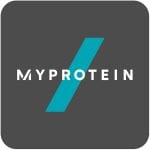
It is certainly positive to supplement with vitamins, minerals, and other health-insuring substances no matter what time of day you can fit them in or in what combinations, especially for those of us who place higher-than-average demands on our bodies and require more than recommended amounts. However, with that being said, the body absorbs and utilizes certain things best at certain times, in certain combinations, and in certain states.
Some vitamins, minerals, and other supplements must be taken with food yet others require a fasted state for dedicated absorption; some are fat-soluble, meaning they can only be absorbed in the simultaneous presence of dietary fat (one of the many reasons fat intake is absolutely crucial!); some are water-soluble, meaning they do not require fat to be absorbed; some benefit from an insulin spike for full absorption; and still others must be spaced far from specific other supplements due to similar absorption pathways which hinder each other if conducted simultaneously.
Fine-Tuning Supplement Timing
While this is all less-critical minutia when compared to first mastering the basic fundamentals, it can certainly make for a more optimal strategy in fine-tuning an athlete's approach for maximum effectiveness. First, get your training and basic nutrition principles in meticulous control. Results only come from layering more specific steps on top of firmly established previous steps; you cannot level up by skipping steps.
Provided all your previous bases are covered, here are some guidelines with regards to common supplementation within the athletic community, to get the most out of what you sink into your vitamin-aisle fund.
Empty Stomach Supplements
These are your divas... they just need all the attention!
- Probiotics
- Magnesium
- Iron
- Zinc (BUT: it is most important that it be taken far away from iron, if you take it, since they compete for absorption; so it is best to take zinc before bed, especially alongside some magnesium since the two are sleep-supporting! Use your morning empty stomach for the iron.)
- B-12 if taken independently
Bonus tip: try to avoid hot beverages such as your morning coffee or tea immediately before or after these as they can be compromised.
Water-Soluble Supplements to Take With Food
This does not need to be a fat-containing meal.
- B vitamins other than separate B-12
- Vitamin C
- Calcium (best absorbed in smaller amounts, so if you take more than one or also take other calcium-containing supplements, split them up)
- Potassium
- Creatine (benefits highly from the increased uptake made possible by the insulin spike of food, especially your FIRST meal!)
Bonus tip: if you are avoiding fat in a meal, such as a protein/carb post-workout combination for maximum nutrient partitioning, don't forget that oil supplements such as fish oil or CLA count as dietary fats too – save them for later.)
Bonus bonus tip: beta alanine is affected by timing and combination but is completely up to your preference; what is affected is the parasthesia, which is the pins-and-needles side-effect disliked by some. Taking it with food slows down absorption, thereby lessening or eliminating that sensation. It can be taken fasted or with food, and, like creatine, the objective of beta alanine supplementation is to maintain consistent system saturation, so the timing is inconsequential as long as it is taken every day.
Supplements to Take With Food Containing Fat
- Multivitamin
- Vitamin D (good for a meal late in the day since it can help with sleep)
- Anything else not mentioned in this guide is best assumed to be fat-soluble!
Take-Home Message
You will be hard pressed to find a bottle which actually tells you to take something without a meal; the reason most direction labels advise consumers to take a supplement with food is due to the fact that some people experience gastric distress upon taking certain vitamins or minerals on an empty stomach.
However, if your digestive system operates without issue, you only stand to gain from a little self-education from multiple credible sources on how to optimize your supplementation investments!
Our articles should be used for informational and educational purposes only and are not intended to be taken as medical advice. If you're concerned, consult a health professional before taking dietary supplements or introducing any major changes to your diet.

Related Articles








